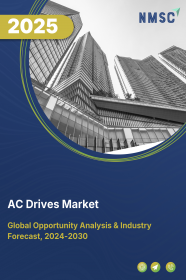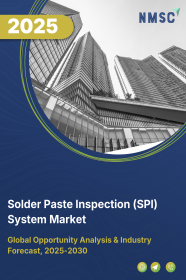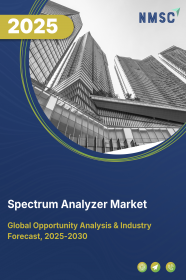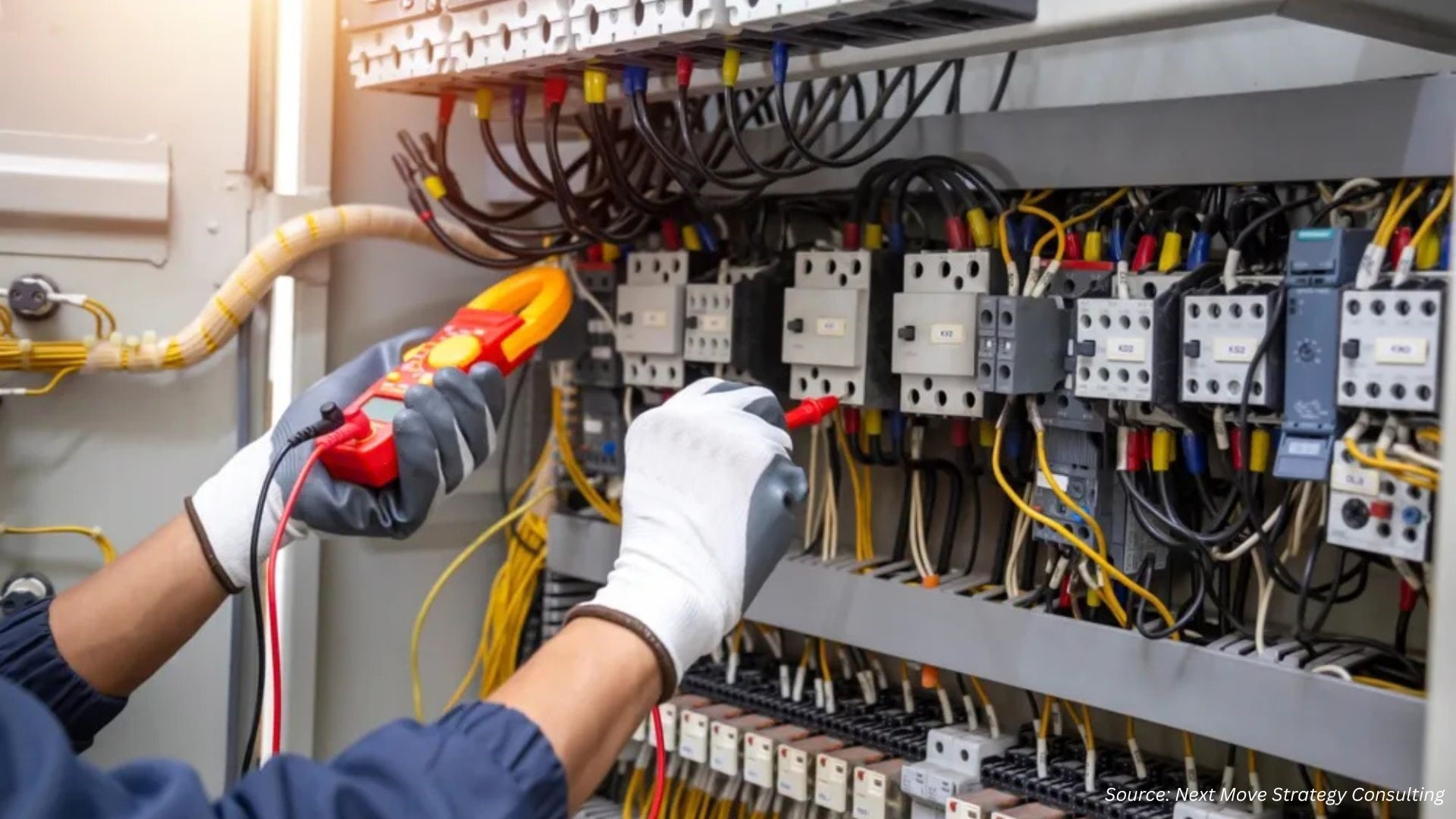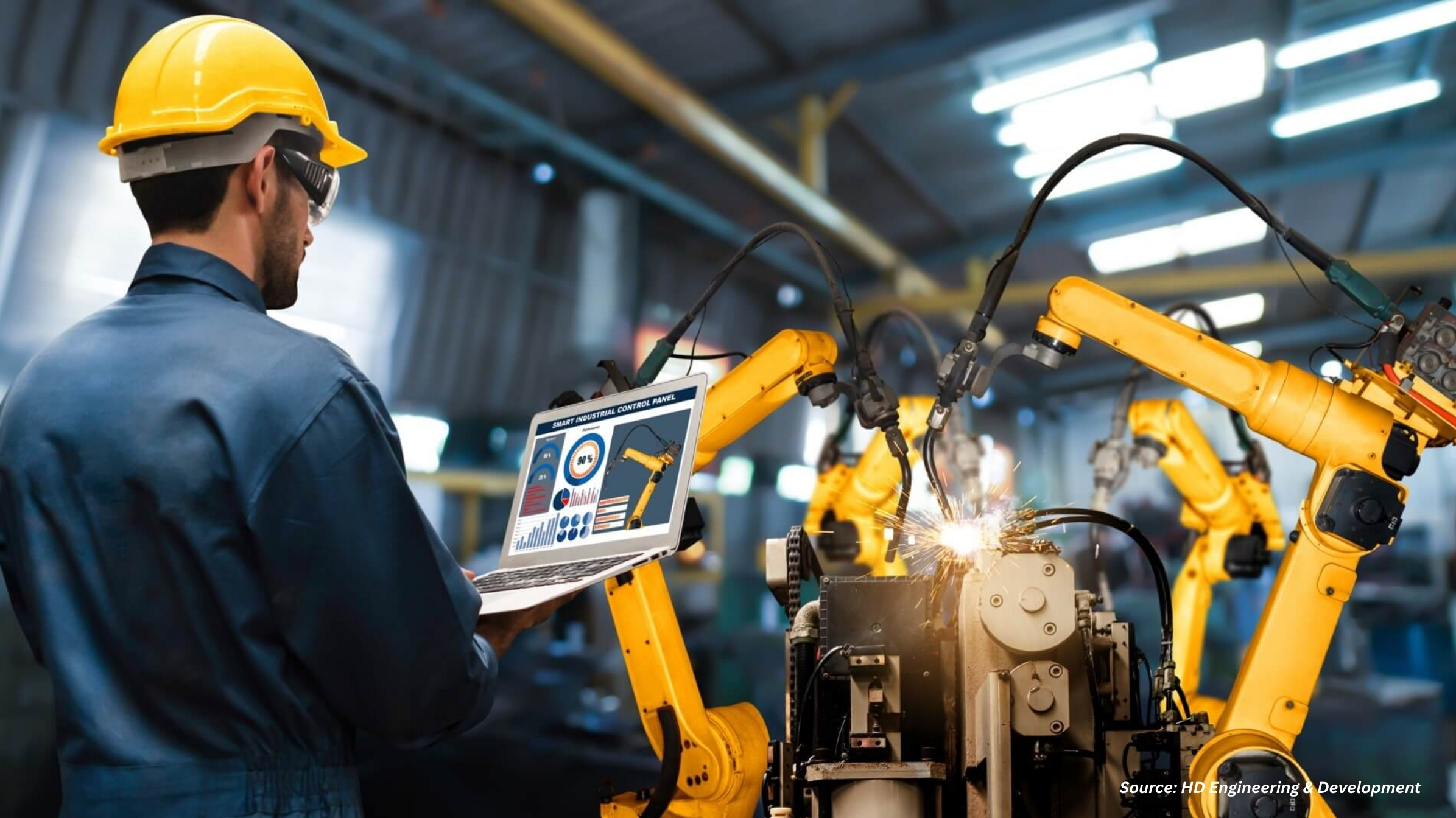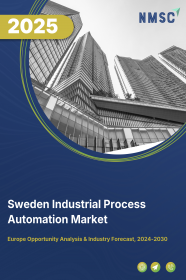
Sweden Industrial Process Automation Market by Component (MES [Hardware, Software, Services]; DCS [Hardware, Software, Services]; PLC [Hardware, Software, Services]; SCADA [Hardware, Software, Services]; Field Instruments; Industrial Robots; Human Machine Interface; Industrial PCs; Process Analyzers& Drives) and by End User (Oil & Gas, Chemicals & Refining, Energy & Power, Pulp & Paper, Metals & Mining, Pharma, & Others) – Country Opportunity Analysis and Industry Forecast, 2025–2030.
Industry: Semiconductor & Electronics | Publish Date: 25-Oct-2025 | No of Pages: 159 | No. of Tables: 121 | No. of Figures: 66 | Format: PDF | Report Code : SE991
Industry Outlook
The Sweden Industrial Process Automation Market size was valued at USD 390.6 million in 2024 and is projected to grow to USD 407.9 million by 2025. Additionally, the industry is expected to continue its growth trajectory, reaching USD 446.4 million by 2030, at a CAGR of 2.25% from 2025 to 2030.
The expansion of Sweden’s industrial engineering sector is a major driver of the industrial process automation market, as the focus on precision, efficiency, and cost optimization accelerates the adoption of automation solutions and fosters innovation across industries. The growth of robotics manufacturing further strengthens this momentum, with rising investments enabling localized production, improved scalability, and enhanced competitiveness, positioning Sweden as a hub for robotics-driven automation.
However, strict regulatory and compliance requirements act as a restraint, as businesses face costly system modifications and delays to meet stringent standards. At the same time, the adoption of Industry 4.0 strategies and digital transformation initiatives creates significant opportunities, with IoT, AI, big data analytics, and cloud computing enabling smarter, more agile, and sustainable production systems that reinforce Sweden’s leadership in advanced manufacturing.
Expansion of the Industrial Engineering Sector Fuels Market Growth
The growth of Sweden’s industrial engineering sector significantly drives the adoption of industrial process automation, supported by rising demand for precision, efficiency, and streamlined operations across industries. The sector’s strong focus on optimizing production processes and reducing operational costs accelerates the uptake of automation solutions. Moreover, Sweden’s GDP growth reflects the sector’s critical role in fostering technological innovation and strengthening the foundation for widespread automation adoption.
Growth of Robotics Manufacturing Accelerates Automation
The expansion of robotics manufacturing further stimulates the Sweden industrial process automation market expansion as industries pursue localized production to enhance efficiency, flexibility, and cost savings. Rising investments in robotics not only support technological innovation but also improve scalability in industrial operations. These advancements position Sweden as a hub for robotics-driven automation, enabling industries to optimize processes and maintain global competitiveness.
Regulatory and Compliance Challenges Slow Adoption
Strict regulatory and compliance requirements hinder the Sweden industrial process automation market growth. Ensuring that automation systems align with stringent industry standards requires costly modifications, delaying deployment timelines. Businesses face added complexity as they navigate these requirements to remain compliant, which slows the adoption of advanced technologies across industries.
Industry 4.0 and Digital Transformation Drive Future Growth
The ongoing adoption of Industry 4.0 strategies and digital transformation initiatives present a strong growth opportunity for Sweden’s industrial automation market. By integrating IoT, AI, big data analytics, and cloud computing into manufacturing processes, industries enhance operational visibility, enable predictive maintenance, and improve decision-making. These advancements pave the way for smarter, more agile production systems, reinforcing Sweden’s reputation as a leader in advanced manufacturing and sustainable automation.
Competitive Landscape
The promising players operating in the Sweden industrial process automation industry include ABB Ltd., Siemens AG, Honeywell International Inc., Schneider Electric SE, Emerson Electric Co., Rockwell Automation, Inc., Yokogawa Electric Corporation, Mitsubishi Electric Corporation, Omron Corporation, Endress+Hauser AG, AFRY AB, KROHNE Messtechnik GmbH, Danfoss A/S, Festo SE & Co. KG, and Phoenix Contact GmbH & Co. KG, and others.
Sweden Industrial Process Automation Market Key Segments
By Component
-
Manufacturing Execution Systems (MES)
-
Hardware
-
Software
-
Services
-
-
Distributed Control Systems (DCS)
-
Hardware
-
Software
-
Services
-
-
Programmable Logic Control (PLC)
-
Hardware
-
Software
-
Services
-
-
Supervisory Control and Data Acquisition (SCADA)
-
Hardware
-
Software
-
Services
-
-
Field Instruments
-
Industrial Robots
-
Human Machine Interface (HMI)
-
Industrial PCs
-
Process Analyzers and Drives
By End User
-
Oil and Gas
-
Chemicals and Refining
-
Energy and Power
-
Pulp and Paper
-
Metals and Mining
-
Pharmaceuticals
-
Cement & Glass
-
Others
Key Players
-
ABB Ltd.
-
Siemens AG
-
Honeywell International Inc.
-
Schneider Electric SE
-
Yokogawa Electric Corporation
-
Mitsubishi Electric Corporation
-
Omron Corporation
-
Endress+Hauser AG
-
AFRY AB
-
KROHNE Messtechnik GmbH
-
Danfoss A/S
-
Festo SE & Co. KG
-
Phoenix Contact GmbH & Co. KG
Report Scope and Segmentation
|
Parameters |
Details |
|
Market Size Value in 2025 |
USD 407.9Million |
|
Revenue Forecast in 2030 |
USD 446.4Million |
|
Value Growth Rate |
CAGR of 2.25 %from 2025 to 2030 |
|
Analysis Period |
2024–2030 |
|
Base Year Considered |
2024 |
|
Forecast Period |
2025–2030 |
|
Market Size Estimation |
Million (USD) |
|
Growth Factors |
|
|
Companies Profiled |
15 |
|
Market Share |
Available for 10 companies |
|
Customization Scope |
Free customization (equivalent to up to 80 working hours of analysts) after purchase. Addition or alteration to country, regional, and segment scope. |
|
Pricing and Purchase Options |
Avail customized purchase options to meet your exact research needs. |

















 Speak to Our Analyst
Speak to Our Analyst



